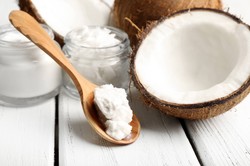
Vitamin D for Dummies
by Flora
Sunlight, whether through natural sunlight or artificially by tanning beds can have positives. Either way the body reacts the same to the exposure.
Did Charles Dickens’s character, the beloved Tiny Tim of A Christmas Carol suffer from a vitamin D deficiency? Given his father's paltry salary under the tight-fisted Ebenezer Scrooge, the limited grocery budget under such circumstances and the choking smog and smoke of London at that time, he may well have. Here's why:
What You Can Observe
Tanning is the visually observable aspect of the many physiological processes set in motion when human skin and the optic nerves are exposed to ultraviolet radiation. Despite the source of the UV light -- naturally through sunlight or artificially by tanning beds -- the body's reaction is the same. Optical nerve exposure to light stimulates the brain's pituitary gland to produce melanocyte-stimulating hormone (MSH). MSH works as described. It stimulates melanocytes to produce melatonin, the pigments pheomelanin and eumelanin, that accumulate in the skin to produce the characteristic "copper brown" tan in Caucasians.
Melanocytes
Melanocytes are more than just "the sun tan cells." They originate in the neural crest, the embryonic bump that later develops into the human brain and spinal cord. As an embryo continues to develop, some of the neural crest rotates from an internal structure to an external one and melanocytes become part of the epidermis. There, the octopus-like melanocytes are closely aligned to keratinocytes, the "building blocks" of skin, via their dendrites or tentacles. When stimulated by MSH to make melatonin, melanocytes also signal the keratinocytes to increase dermal density. Other research appears to indicate that melanocytes may also signal a wide variety of bodily functions, including mood, energy and appetite.
What You Can't Observe
When human skin is exposed to ultraviolet light, the action ultimately results in the production of Vitamin D, also known as cholecalciferol. This vitamin is converted into easily stored calcidiol and any extra amount is stored in the body's fat and the blood. The body requires a certain amount of circulating blood calcium levels regulated by calcidiol's effect on the kidneys. Any additional calcidiol is distributed to multiple tissues throughout the body. There, the body converts calcidiol into calcitriol, the activated form of Vitamin D and also the most powerful steroid in the human body. All steroidal hormones work by signaling the activation or deactivation of genes, thereby influencing the production of hundreds of proteins and enzymes at work in every body system.
Vitamin D
Vitamin D is necessary for bone density, energy, metabolism and some as-yet unidentified physiological functions. Unfortunately, aside from exposure to UV radiation, the body has few sources of Vitamin D. Milk is fortified with Vitamin D to assist in the body's necessary uptake of calcium to maintain skeletal strength. Natural dietary sources of Vitamin D are limited to oily fish such as tuna and salmon or fish oil capsules. Not unexpectedly, a large proportion of individuals in temperate climates or northern countries are Vitamin D deficient. While Vitamin D supplements are available in both prescription and over-the-counter form, their absorption and overall efficacy are questionable.
And, So…
Nutritionists debate the recommended daily amount of Vitamin D. Supplements may not work or may accumulate to toxic levels in rare cases. Exposure to light is the only known means of providing Vitamin D without risk of overdose.
You might also like
Unlocking 31 Benefits of Coconut Oil: Choosing the Right Type ...Discover Budget-Friendly Organic Solutions: Cost-Cutting Coconut Oil Treatmen...



 Online vs Traditional Advertising: Two Methods Enter, One Method Leaveson 07/02/2012
Online vs Traditional Advertising: Two Methods Enter, One Method Leaveson 07/02/2012
 The Future of Education: Ivy-Covered iPads?on 05/09/2012
The Future of Education: Ivy-Covered iPads?on 05/09/2012
 Benefits of a Growing Company in Indianaon 04/24/2012
Benefits of a Growing Company in Indianaon 04/24/2012
 Digital Learning Day and Hope for the Future of Educationon 03/07/2012
Digital Learning Day and Hope for the Future of Educationon 03/07/2012

Comments
Thanks Angel, I'm glad you like it! Lack of vitamin D can make you feel tired, and you definitely need to be careful sun bathing having Melanoma. That's a really good point with psoriasis! I've heard topical vitamin D has been one of the most effective treatments in alleviating plaques, and preventing lesions. Great feedback!
Very technical detailed information! I have started taking Vit D drops since my doctor told me my Vit D levels were low and may be why I am so tired all the time. I LOVE the sun but have to be careful since I have had Melanoma. I feel so much better after sitting at the pool for an hour or so. I just got diagnosed with psoriasis too and I read that Vit D helps that too. Very good article!